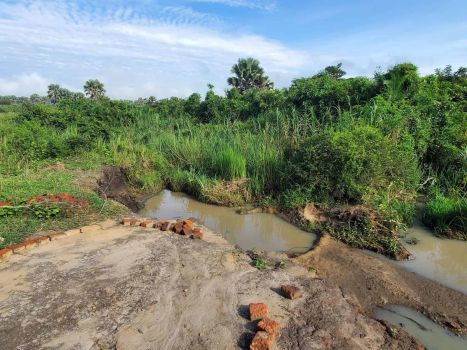
Case Study: Gulu Integrated Catchment Management Partnership
Many challenges are affecting Gulu in Northern Uganda. Stakeholders across sectors have joined forces in 2021 to tackle them under the Gulu Integrated Catchment Management Partnership. Find more about the partnership here!
Gulu in Northern Uganda is one of the country’s fastest-growing cities. As the city continues to grow, so does the amount of solid waste and the degree of environmental degradation. Solid waste pollution in Gulu results in public health risks, affects food and water security and leads to a loss of biodiversity. In addition, the degradation within the Oyitino micro-catchment reduces the city’s water supply and leads to risks for businesses and communities, causing unemployment and disruptions in economic activities such as agriculture, the very basis for the city’s further development. In the past, various stakeholders in Gulu recognised these risks and were ready to act. However, individual actions were often limited in their effectiveness due to the scale and complexity of the city’s environmental challenges. Recognising the need for cross-sectoral efforts, the Ministry of Water and Environment, Gulu City Council (GCC), National Water and Sewerage Corporation (NWSC), the recycling company Takataka Plastics, and the NGO Community Empowerment Education Development (CEED) Uganda in 2021 decided to form a multi-stakeholder partnership: The Gulu Integrated Catchment Management Partnership.